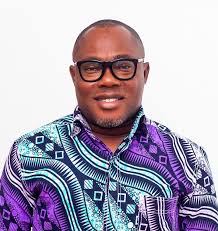
Audio By Carbonatix
Politics in Ghana, has essentially been politics of the youth. Apart from the Kufuor regime that was understandably gerontocratic, relatively younger people have generally been dominant in everything governance, politics and leadership in Ghana. Therefore any deliberate effort to dialogue with them before an election via the decent platform of Town Hall, is commendable, as it would help erase the derogatory perception of young people as immature, dangerous to themselves, and agents used to foment conflict. This would in turn seize them with the information with which they can demand accountability from governments.
The age cohort of 18 to 35 years is almost 70 percent of Ghana’s voting population. Any serious effort at winning an election must therefore target the youth for the purposes of engaging them in a civil dialogue on matters germane to their welfare and what can be done about them. Virtually all the problems confronting Ghana would be solved if the problems of young people were clearly articulated, properly grasped, and addressed.
The worry, however, is about the creation of the impression that there are solutions to all the problems of the youth. This, if not managed well, may create more disappointments. Around this time, every cohort in the voting population would want to hear something about what can be done to help them. But realistically, it would take a lot of strenuous effort to properly rebuild what has been destroyed and regain what is lost.
In this regard, young people must be made to know quite frankly that, given the challenges that lie ahead of us as a people, it would have to be tough before it becomes easier. We would all have to tighten our belts a little more, from whoever heads the country to the lowest-rated citizen. From the topmost politician to the party footsoldier, all must brace themselves to endure a little more suffering, after which things would begin to ease up.
This should be the message to the youth. Jerry Rawlings in his second bid to win power in the 1996 General Elections, articulated this type of message cleverly and in a manner that should be emulated. He said he wouldn’t promise anyone anything and that all he could promise was hard work which would in turn pay off to meet the needs of all.
I, therefore, urge all to be measured in the expectations they create, even if it is still true that “yɛte sika so, nanso ɛkɔm de yɛn”, in order to avoid further disappointments that can threaten the very survival of our democracy and peace.
Yaw Gyampo
A31, Prabiw
PAV Ansah Street
Saltpond
&
Suro Nipa House
Behind Old Post Office
Larteh-Akuapim
Latest Stories
-
Foreign remittances hit $7.8bn in 2025 – Mahama
55 seconds -
Mahama pledges to end ‘no bed syndrome’ and expand hospital capacity nationwide
9 minutes -
No patient must be turned way over lack of hospital beds – President Mahama
10 minutes -
SONA 2026 in Pictures
11 minutes -
Mahama vows to go after ‘big fish’ in galamsey fight, reveals intensified prosecutions
19 minutes -
Alarm Bells in Mogadishu: Security erodes as Al-Shabaab races towards “Greater Somalia”
20 minutes -
Mahama unveils TVET centres, SHS upgrades and 50,000 teachers’ housing plan
23 minutes -
‘December 19, 2022, under Akufo-Addo was one of the darkest days in Ghana’s economic history’ – Mahama
29 minutes -
John Mahama: Cedi soars 40.7% as Ghana’s economy surpasses $100bn
31 minutes -
Ghana clears $500m gas debt, restores World Bank guarantee – Mahama
33 minutes -
Mahama announces plans to reintroduce road tolls using technology
34 minutes -
US$1.1bn debt restructuring in power sector saves US$250m – Mahama
38 minutes -
Mahama announces 600 new classroom blocks nationwide to strengthen basic education
40 minutes -
We are steadily clearing road sector debt — Mahama assures Ghanaians
42 minutes -
Fasten your seatbelts, Ghana is in take-off mode — Mahama tells Ghanaians
45 minutes

